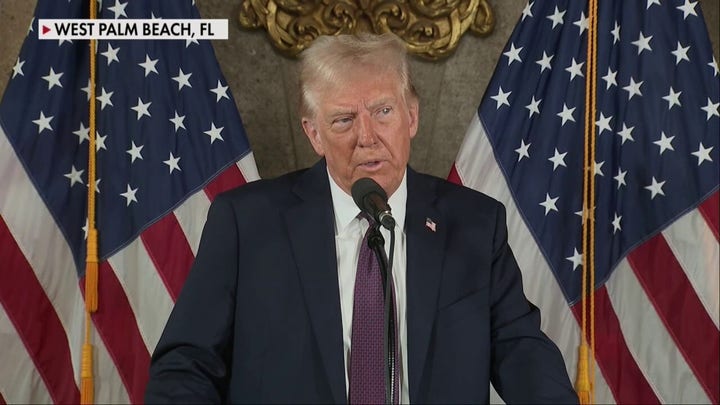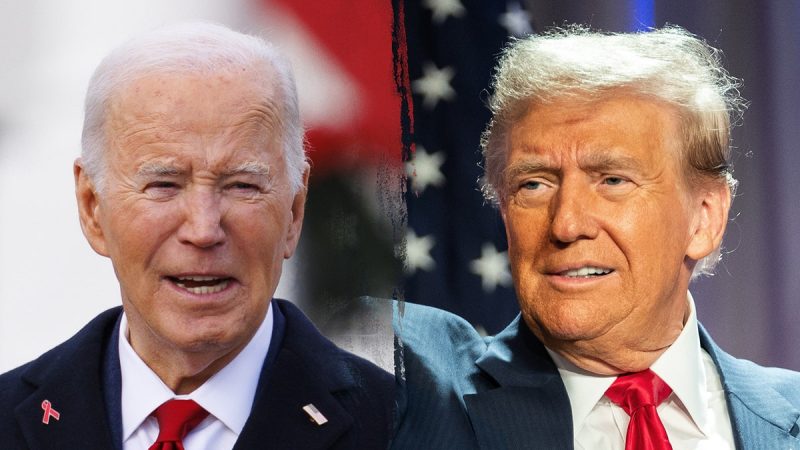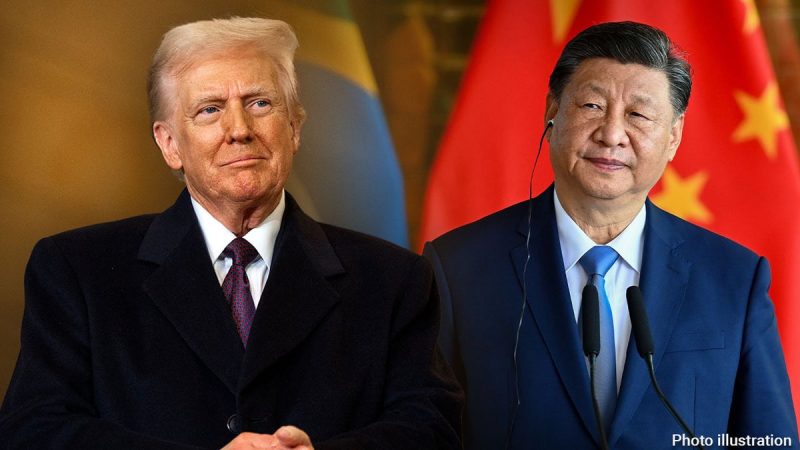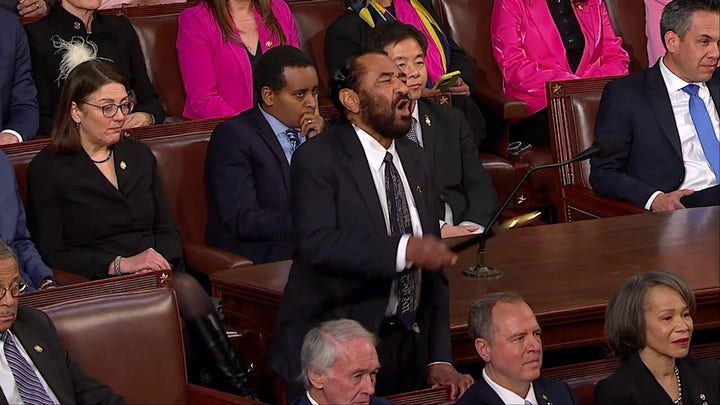
The Pentagon’s procurement system has kept American forces stocked with some of the most iconic military hardware in history – from the battle-hardened Humvee to the cutting-edge Apache helicopter. But according to the Army’s top technology officer, it’s also trapped in a cycle of outdated thinking and bloated paperwork that could hinder the U.S. in the next great-power conflict.
‘We still have just over 100,000 Humvees,’ Alex Miller, the Army’s Chief Technology Officer, told Fox News Digital, speaking about the legacy vehicle first introduced in the 1980s. ‘Even though during the global War on Terror, we saw the threat change.’
Miller pointed to roadside bombs, or IEDs, which devastated troops in Iraq and Afghanistan, as a turning point. ‘There were lots of reports that if a Humvee rolled over an IED, it just was not a good situation for soldiers,’ he said.
Still, the Army continued buying Humvees, even as it rushed to field more survivable vehicles like MRAPs and Strykers. That, Miller said, highlights the larger issue: not a single acquisition failure, but a systemwide problem in how the military does business.
‘We’re playing by the same post-Cold War rules that told us if you have a requirement, you’re going to keep on buying it,’ Miller said. ‘Because the requirements process and the acquisition process and the fielding process sort of never changed, we find ourselves in this conundrum where we still have just over 100,000 Humvees.’
Despite introducing newer vehicles like the JLTV – designed to replace the Humvee with better armor and mobility – Miller says the rapid pace of technological change and emerging threats have left even those newer systems at risk of becoming obsolete.
‘Even though we continue to buy them and have them in the budget,’ he said, ‘that might not be the right answer either.’
Miller laid out the Army’s plans to solve a decades-long issue at the Pentagon, bringing new weapons systems from the proposal stage to the battlefront before technology renders them outdated – just as Defense Secretary Pete Hegseth issued a new memo directing an overhaul of the Army’s acquisitions process.
‘To build a leaner, more lethal force, the Army must transform at an accelerated pace by divesting outdated, redundant, and inefficient programs, as well as restructuring headquarters and acquisition systems,’ Hegseth wrote.
Fighting today’s war with yesterday’s tools
Miller warned that some of the Army’s marquee weapons platforms may not be suited for the battlefields of the future.
‘Ukraine has not asked for a single Apache,’ he noted. ‘Our Apaches are a great platform. It’s amazing. But … looking at more unmanned systems is probably the way to go.’
He also raised questions about the utility of legacy artillery platforms like the Paladin howitzer. Although artillery is dominating the war in Ukraine, the Army is stockpiling more Paladins largely to meet a ‘minimum sustainment rate’ — not because commanders are asking for them.
That kind of bureaucratic inertia, Miller suggested, is exactly what needs to be upended.
In an effort to modernize more rapidly, the Army is now slashing red tape and rewriting regulations. Under a new initiative called ‘Transforming in Contact,’ Army leaders have sent requirement writers into the field to live and train alongside soldiers, gathering real-time feedback instead of drafting 300-page documents back in Washington.
‘Rather than trying to define what types of things they need, how about we just listen to them for a change?’ Miller said. ‘We started that last year … and that has been wildly successful.’
Units heading to the Joint Readiness Training Center at Fort Johnson, Louisiana next week will be equipped with some of the most advanced gear in the Army, including autonomous infantry vehicles built with Silicon Valley partners, advanced battery tech and hundreds of drones.
‘All because our leadership just said, go do the right thing, rather than trying to check boxes,’ Miller said.
Now, according to Miller, the requirements documentation for things like next-generation unmanned aerial vehicles has been whittled down from between 200 and 300 pages to 10.
In other cases, modernization isn’t always necessary, according to Abigail Blanco, defense expert and professor at the University of Tampa.
Up until a few years ago when it was finally retired, one of the primary reconnaissance systems in the War on Terror was the RQ-4 Global Hawk.
The RQ-4 had an impressive payload capacity of 3,000 pounds and advanced reconnaissance capabilities – at an enormous cost. Each one was originally slated to cost $20 million but wound up costing $220 million per unit.
‘If you look at reports from the Air Force, they repeatedly stated that instead of the [RQ-4], they preferred the U-2 spy plane, which, to be clear, is a relic in military terms. It’s from the Cold War period. And so it’s not always clear that the modernization piece is desirable.’
A Battle Inside the Beltway
Some lawmakers and defense officials initially resisted the Army’s push to streamline systems.
‘The OSD comptroller pushed back really hard. Some parts of the Hill pushed back really hard,’ Miller said. ‘But we ran a really aggressive ground game.… We’re not asking for more money. We’re asking to spend taxpayer dollars better.’
The problem, according to Blanco, is Congress has long continued to budget for equipment way beyond its point of usefulness.
‘If you are an elected representative and your district manufactures Humvees or tanks, you have a really strong vested interest in ensuring that that technology continues to be produced, regardless whether or not it’s operationally necessary.’
In the end, Miller said, acquisition reform isn’t about cutting corners – it’s about keeping pace with an adversary who doesn’t care about red tape.
‘The environment, the threat, and the reality change so fast,’ he said. ‘We have permission to just be ruthless about working with commercial entities … and figuring out what can we get in the hands of soldiers faster.’
This post appeared first on FOX NEWS


























